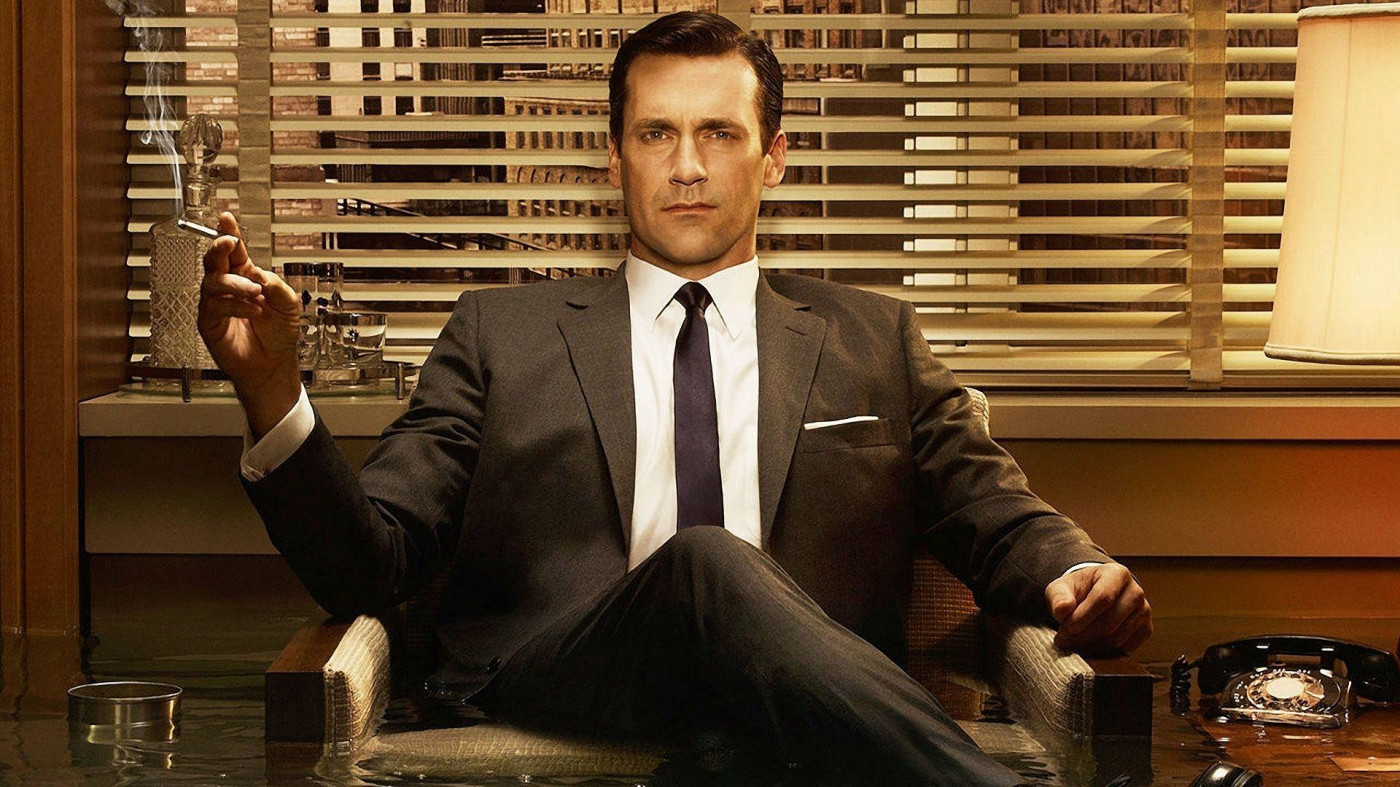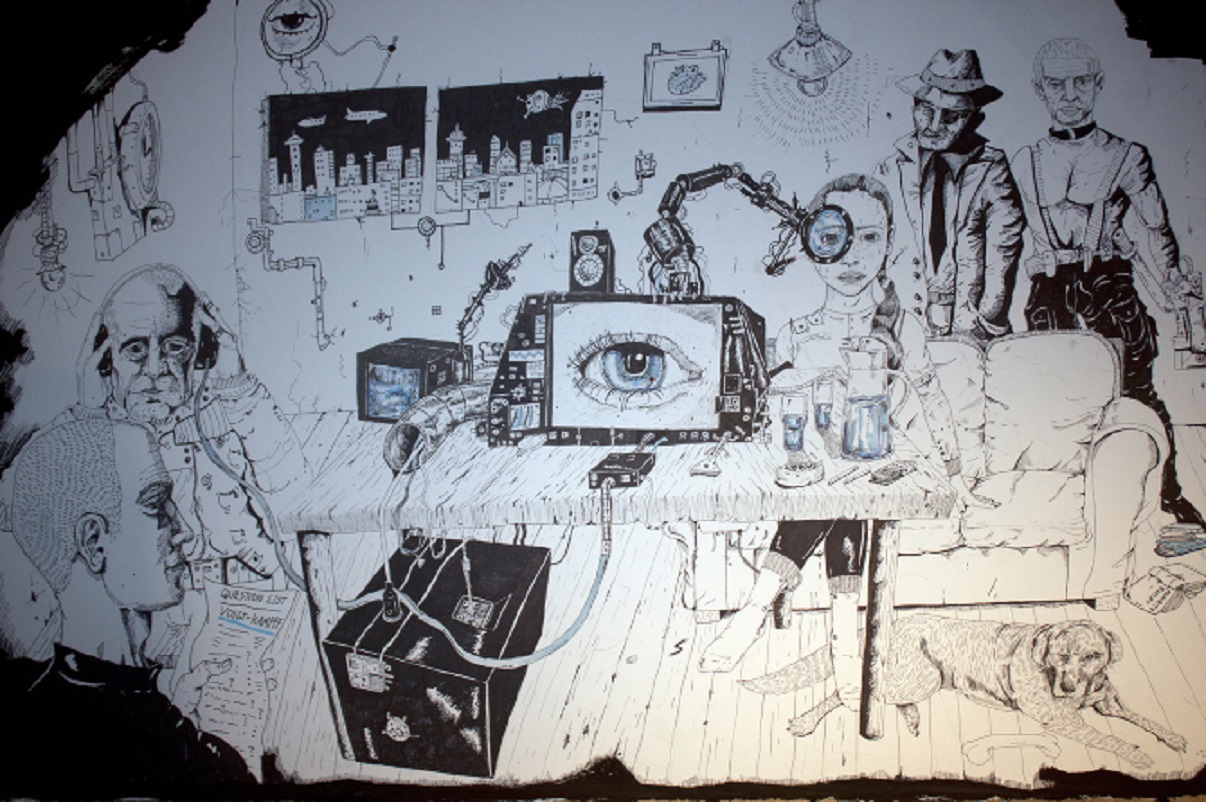When we go down the road of controlling (or regulating) ourselves we open the door to a nightmare of cosmic proportions, yet we don’t see it. For whatever reason, our imagination is insufficient to see where self-controlling (or ‘self-regulation’) leads to. We actually think that this is a good thing, an appropriate remedy for whatever difficulties we might be having with our mental health.
We just don’t look carefully enough at what this business of ‘controlling ourselves’ entails – if I control myself then I also have to control the one who is doing the controlling, which is another self, another controller. Just as Krishnamurti says that the self cannot destroy itself without immediately creating another self (which is the self which does the destroying), so too the self cannot control itself without at the very same time creating another self, which is ‘the controlling self’ – ‘the self that controls the self’.
If controlling is good then the controlling self needs controlling just as much as the self that I was setting out to control does! ‘All must be controlled and then all will be well’ is the unspoken motto here! The meta-self can’t be exempt from the need for it to be regulated; if it was exempt then that would mean I am being controlled by something which itself is uncontrolled, unregulated, and unmanaged, and that would make the whole endeavour into a farce! It has to be ‘all or nothing’ when it comes to control – there’s no point in controlling half the story and yet not controlling the other half. That would bring us right back to where we started (which was ‘the uncontrolled or unregulated mess that we are trying to get away from)’! When controlling is ‘what it’s all about’ then chaos is the enemy that lurks menacingly behind every street corner.
Self-controlling (or self-regulation) always turns into an infinite regress – there’s no way that it can’t. This whole business of ‘controlling ourselves’ is simply a glitch waiting to happen – as soon as we start trying to make ourselves the object of our own intentions we run into Russell’s Paradox, which is a ‘paradox of self-reference’. Just as nothing meaningful can be said by relating a thing to itself, so too can nothing meaningful be done.
Our answer as therapists to this argument is to entirely ignore it! Philosophy is philosophy we say, and psychology is psychology; these are quite different compartments and a psychologist or therapist simply doesn’t need to know anything about paradoxes of self-reference. That’s not his or her department. We imagine ourselves to be excused from the fundamental principles of logic, in other words, just because we don’t know about them! There was once a time when psychologists were – of necessity – philosophers as well but that time is long past; instead we now have specialists who know very little of anything outside of their speciality but nevertheless claim to be experts in the discipline that relates more than any other to ‘the totality of its human experience’, in both its mundane and extraordinary aspects. Yet how can we be experts in this accepted narrow sense in the field of something as big as ‘the totality of human experience’? How do we hope to apply specialism to the field of life itself?
If only we could stand back a bit, we would see that to live by controlling ourselves is not to live at all. To control is by definition ‘to bring everything within the realm of the known’ and life does not take place within the realm of the known. Jung says somewhere that consciousness is ‘the movement from one unknown to another’; controlling on the other hand is the blind obsessive insistence that we start from the known and never go any further than it! This is not to say that controlling or regulation is not an essential part of human life (or any other type of life, for that matter) – the internal environment of our bodies and the proper function of our bodily organs all need to be regulated to a very fine degree or else we will die very quickly! Social behaviour also needs to be regulated (to some extent) if we are to live harmoniously together: if there is a well in the village, then we have to all agree to refrain from urinating right by it! Doing this isn’t fascism, it’s just common sense. But when it comes to our inner life control is the very devil, reluctant as we are to see this! There’s never any practically useful and beneficial reason for ‘restricting our inner life’ – the only possible reason is fear and nothing beneficial ever came from fear, or ‘running away’. That would be like saying that there can be benefits from ‘refusing to face the issue at hand’ or ‘hiding our heads in the sand’. It doesn’t really ring true…
The more afraid we are the more we restrict our inner life, and the less afraid we are the less we are restricted in this regard. Our general way of being in the world is that we restrict our inner light to the point that we don’t even know that we have any! We are so much ‘in control’ (even when we think we’re out of control) that we don’t know that there is such a thing as ‘the inner life’ – all we know our reflex reactions, our reflex emotions or feelings and this is what we imagine the inner world to consist of. What ‘chokes the life out of our inner life’ is this business of self-controlling, self-regulating, therefore. This is the noose that is around us – it’s ‘the noose of our own self regulating minds’! This ‘noose’ actually has a very profound effect on the way we perceive reality – or to put this another way, the noose of our thinking very effectively prevents us from seeing reality or in any way knowing about it. This is because self-regulation (when we’re talking about the mind rather than a central-heating system or something like that) always results in the production of a ‘virtual reality’ – a ‘reality that isn’t actually real’. When we reflect on this for a moment or two we can of course see that there is no other possible outcome to self-regulation when it comes to the mind – if I’m regulating something then I myself have to supply the standards to which it must be regulated; if I am controlling something then I have to be the one who ‘tells it what to do’.
This is so ridiculously obvious that there is hardly any point in coming out and saying it. Yet at the same time we have to say it because we never even come close to seeing it – we’re so blandly accepting of the virtual reality that we ourselves have inadvertently (or unconsciously) created that we never going to be looking beyond it. The Mind-Created Virtual Reality comes after all with its own inbuilt mechanical incentivization system – lots and lots of little ‘biases’, each one like a little magnet with a plus pole at one end and a minus pole at the other so that wherever we are within the magnetic field we are compelled try and organise the world and ourselves in a way that accords with this basic framework. The magnetic field (which is the Mind-Created Virtual Reality) actually substitutes itself for our own volition and so we kept too busy with our own ‘attachments’ to ever look beyond it. We’re not incentivized to look beyond it…
So here we have the situation where we ‘automatically create a virtual reality without knowing that we have done so’ and this virtual reality keeps us too busy with the snare of attraction/aversion ever to take any interest in anything that might exist beyond it. This is as neat a trick as any that you will ever hear of. And moreover, it’s a trick that no one – apart from a few Buddhist sages – seems to know anything about.
‘When all is controlled then all will be well’ is our motto and what we don’t see is that ‘when all is controlled’ then there is no longer any such thing as reality, since reality is the one thing that can’t be the product of our own intention. What does control mean apart from ‘making things be what we think they ought to be’, and how can reality be the puppet of our own arbitrary intention without turning it immediately into a delusion? Similarly, when we manage or regulate ourselves in terms of ‘how we feel’ then whatever else it is that we might be doing we might be doing it isn’t living! Life is something that has to come by itself through us, not something that is done by us, ‘on purpose’. Reality is not synonymous with our own ‘rational output’.
The consequence of life being something that happens through us is something that – culturally – we shy away from. We don’t want to go there; we don’t want to see where this road leads to. In order for us to experience ourselves as ‘rational/purposeful agents’ (which is to say in, as ‘egos’) we absolutely need to see life as ‘being the same thing as our rational output’; that it is, in other words, something that we need to be in control of rather than something that happens through us and which we can’t claim any authorship of. We won’t say this as bluntly as that because it sounds too ridiculous, that’s how we want to see things, when it comes down to it. We don’t want to experience ourselves ‘as something that simply happens’, which we have no authorship of, because the illusion of the ‘executive self’ is then lost, and the whole world, as we have engineered it, is all about propping up this particular fiction.
There is no joy or stillness ever to be had when we live the life of the ‘executive self’ (the ‘purposeful doer’) but there is however ‘the illusion of control’. Evidently therefore, this illusion is so important to us that we have created the world for ourselves which has the sole function of affirming and reaffirming the reality of this two-dimensional executive self. The reality of the executive self is reaffirmed wherever we turn! Whenever we go beyond the bounds of this self we are unrecognized and therefore rejected. To not play the game of the executive self is the ultimate insult to our fellow game-players! Even those in the field of mental health can only respond to the difficulties and suffering of their patients by trying to find a way for them to continue to play this game. Mental health itself is seen in terms of us being able to live the life of the executive self and implicitly believe in this as the limit of what we are ever required to do. Believing in ourselves as ‘the rational doer’ is the box that absolutely has to be ticked as regards mental health. And all along there is this curious irony, the irony being that it was squeezing ourselves so enthusiastically into this thought-created box that caused our suffering in the first place…






